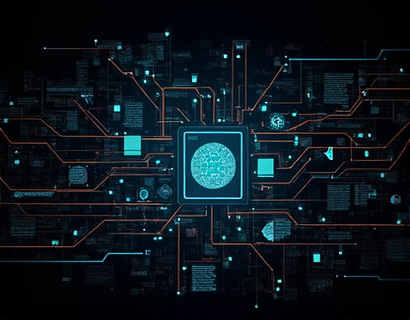Streamlining Business Disputes: Harnessing the Power of Advanced Arbitration Technology for Efficient Conflict Resolution
In today's fast-paced business environment, conflicts and disputes are inevitable. These challenges can significantly impact operational efficiency, strain relationships, and divert valuable resources. However, with the advent of advanced arbitration technology, organizations can revolutionize their approach to conflict management. This article delves into how cutting-edge technology can streamline dispute resolution, enhance operational efficiency, and foster a more collaborative work environment.
Understanding the Need for Advanced Arbitration Solutions
Traditional dispute resolution methods often involve lengthy legal processes, high costs, and prolonged uncertainty. These factors can be detrimental to businesses, especially small and medium-sized enterprises (SMEs) that lack the resources to handle prolonged disputes. Advanced arbitration technology addresses these issues by providing a more efficient, cost-effective, and flexible alternative. By leveraging technology, organizations can simplify the resolution process, reduce time-to-resolution, and maintain business continuity.
Key Features of Advanced Arbitration Software
Advanced arbitration software is designed to streamline every aspect of the dispute resolution process. Some of the key features include:
- Digital Filing and Management: Centralized platforms for submitting and managing dispute files, ensuring all documents are easily accessible and organized. <
- Automated Workflows: Predefined processes that guide the dispute resolution journey, from initiation to conclusion, reducing manual errors and speeding up the process.
- Real-Time Tracking: Tools that allow all parties to monitor the status of the dispute in real-time, enhancing transparency and trust.
- Secure Communication: Encrypted channels for secure and confidential communication between parties and arbitrators, protecting sensitive information.
- Data Analytics: Insights and analytics to help identify trends, predict outcomes, and improve future dispute management strategies.
Enhancing Operational Efficiency
The integration of advanced arbitration technology can significantly enhance operational efficiency in several ways. First, automated workflows reduce the need for manual interventions, minimizing delays and errors. This not only speeds up the resolution process but also reduces the workload on internal resources, allowing them to focus on core business activities. Second, real-time tracking provides stakeholders with up-to-date information, enabling better decision-making and resource allocation. Finally, the centralized management of documents ensures that all necessary information is readily available, reducing the time spent searching for documents and improving overall productivity.
Fostering Stronger Relationships
One of the most significant benefits of advanced arbitration technology is its ability to foster stronger relationships between parties. Traditional dispute resolution methods often create adversarial environments, which can damage business relationships. In contrast, technology-driven processes promote a more collaborative and transparent approach. Real-time tracking and secure communication channels build trust and ensure that all parties are on the same page. This collaborative environment not only helps resolve current disputes more amicably but also sets the foundation for stronger, more resilient business relationships in the future.
Cost Savings and Resource Optimization
Cost is a critical factor for businesses when managing disputes. Advanced arbitration technology offers substantial cost savings by reducing the need for extensive legal resources and minimizing the time spent on resolving disputes. Automated workflows and digital document management eliminate the costs associated with paper-based processes, such as printing, storage, and physical document handling. Additionally, the efficiency gains from streamlined processes mean that businesses can resolve disputes faster, reducing the opportunity cost of tied-up resources. This cost-effectiveness is particularly beneficial for SMEs, which often operate with limited budgets and need to maximize their resources.
Promoting a Collaborative Work Environment
A collaborative work environment is essential for long-term success and innovation. Advanced arbitration technology supports this by creating a neutral and structured platform for dispute resolution. The transparency provided by real-time tracking and secure communication helps build trust and encourages open dialogue. Parties are more likely to engage in constructive discussions and seek mutually beneficial solutions when they feel confident in the fairness and efficiency of the process. This collaborative approach not only resolves current disputes but also enhances the overall organizational culture, leading to a more positive and productive work environment.
Case Studies and Real-World Applications
Several organizations have successfully implemented advanced arbitration technology to streamline their dispute resolution processes. For instance, a multinational corporation faced frequent cross-border disputes involving multiple stakeholders. By adopting a digital arbitration platform, the company reduced the average resolution time by 40% and achieved a 30% reduction in costs. The real-time tracking feature allowed all parties to stay informed and engaged, leading to more cooperative and efficient resolutions. Another example is a network of small businesses that used an automated arbitration system to resolve contract disputes. The platform's user-friendly interface and streamlined workflows enabled these businesses to resolve issues quickly and maintain strong relationships with their partners.
Challenges and Considerations
While the benefits of advanced arbitration technology are clear, there are several challenges and considerations to keep in mind. First, the initial implementation cost can be a barrier for some organizations. However, the long-term savings and efficiency gains often outweigh the upfront investment. Second, ensuring user adoption and training is crucial for the success of the technology. Organizations should invest in comprehensive training programs to ensure all stakeholders are comfortable using the platform. Third, data security and privacy are paramount. It is essential to choose a reputable provider with robust security measures to protect sensitive information.
Future Trends in Arbitration Technology
The field of arbitration technology is rapidly evolving, with several emerging trends poised to further transform dispute resolution. One such trend is the integration of artificial intelligence (AI) and machine learning (ML) to enhance predictive analytics and decision support. AI can analyze historical data to identify patterns and provide insights that help predict dispute outcomes and suggest optimal resolution strategies. Another trend is the use of blockchain technology to ensure the integrity and immutability of dispute records, adding an extra layer of security and trust. As these technologies mature, they will likely become integral components of advanced arbitration platforms.
Conclusion
Advanced arbitration technology offers a powerful solution for businesses looking to streamline dispute resolution and enhance operational efficiency. By leveraging digital tools and platforms, organizations can reduce costs, save time, and foster stronger relationships. The collaborative and transparent nature of these solutions not only resolves current disputes more effectively but also lays the groundwork for a more harmonious and productive work environment. As the technology continues to evolve, businesses that embrace these innovations will be better positioned to navigate the complexities of modern conflict management.










































